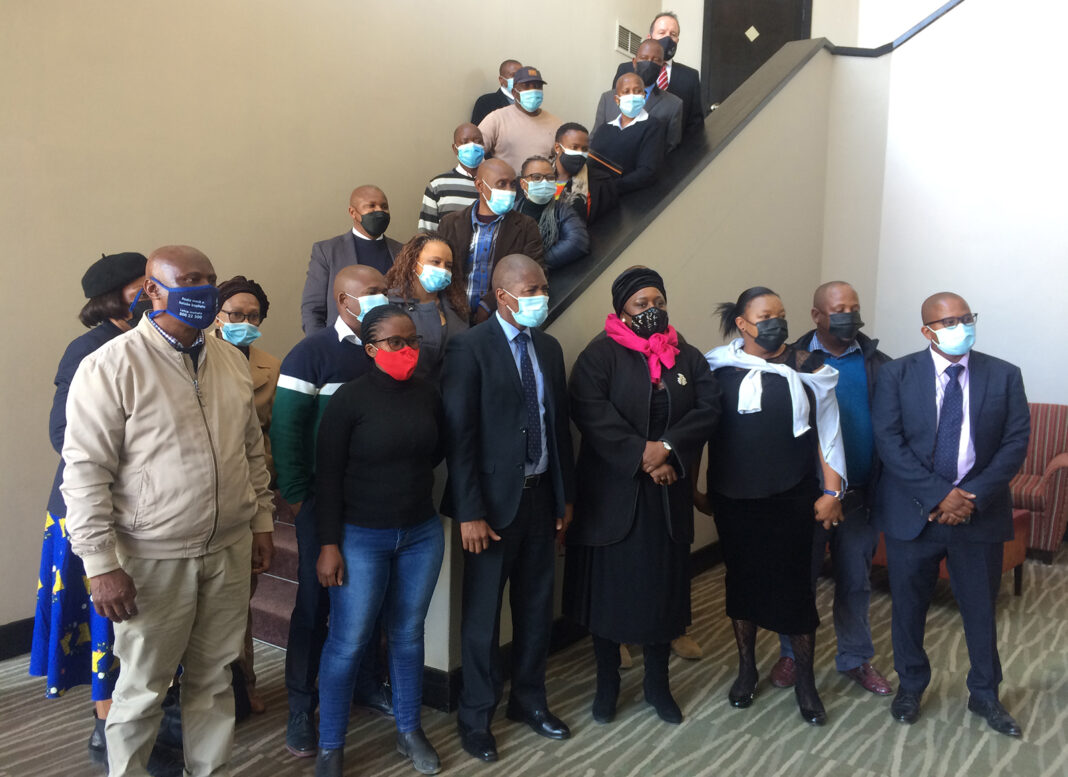By Teboho Serutla
Many liquor stores in the capital Maseru continue to operate illegally and without compliance to the health regulations that are aimed at curbing the spread of the COVID-19 pandemic.
These allegedly unlicensed sellers are always seen operating on weekends despite government’s directive that liquor stores should only open on weekdays to avoid unnecessary crowding that could increase the chances of spreading the virus.
Such establishments thrive at Tšenola and Mathokoane on the outskirts of the city; they are emboldened by lack of police visibility.
One of the illegal dealers at Mathokoane, who did not want to be named, said when police raid the wayward stores the owners simply pay off the cops.
“Even the soldiers who live in our village are our patrons, and they always warn us of an impending raid.”
Just this past Thursday, Maluti Mountain Brewery (MMB) and NACOSEC, met with licensed liquor store owners to discuss ways to ensure the safety of both operators and customers in their businesses.
The legit operators raised concern at illegal operators that do not comply with the Covid-19 regulations; they lamented that law enforcement officers treat the rogue liquor sellers with kids’ gloves just because the officers themselves are patrons at such stores.
The Lesotho Liquor and Restaurant Owners Association (LL&ROA) was not immediately available to comment, but it has on numerous occasions called on the government to take legal action against liquor and food outlets which have been operating in contravention of the Covid-19 Health Regulations.
This came after social media was flooded with pictures of nightclubs packed with revellers, drinking and dancing the night away. A public backlash followed, with people accusing liquor outlets of putting citizens’ lives at risk by operating against the set rules.
The association distanced itself from the clubs in contravention of the law and reassured the government and the public in its Friday statement that its members have maintained and will continue to adhere to the regulations.
They suggested that business which are not legally registered, including those owned by ministers, were the ones operating in contravention of the legal instruments limiting liquor sales to Mondays and Thursdays from 9:00am to 4:00pm.
“As LI&ROA we undertook the commitment to abide by the working conditions set out by the government and the World Health Organisation (WHO) and we tabled our commitment before the ministry of health and the minister of trade and industry.
“It is with great dismay that we learn of the statements attacking our business in general even though it is clear that businesses which failed to adhere to the regulations are those not registered, not operating legally, some of which belong to government ministers. Our belief is that these businesses are known and we are expecting to see legal action taken against them.
“Unfortunately, operational decisions regarding our businesses are done by the minister of health working with the national security agencies. What is painful is that our legally registered businesses remain closed, illegal ones remain operational,” the association stated in its statement.
The LI&LOA further lamented on the two operational days they are allowed to sell liquor on which they are the same days on which they are able to get stock.









